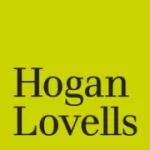Kiobel v. Royal Dutch Petroleum Co. et al.
Executive Summary
The Second Circuit Court of Appeals, in a majority decision
issued in an action brought against Shell alleging complicity in
human rights violations in Nigeria, held that because corporate
liability is not recognized under customary international law,
federal courts do not have jurisdiction to hear cases brought
against corporations under the U.S. Alien Tort Statute.
Background
Plaintiffs, residents of the Ogoni Region of Nigeria, commenced
this action in 2002 in federal court in New York alleging that the
Shell defendants were complicit in the Nigerian government's
international law violations. The lawsuit was brought under the
Alien Tort Statute (ATS), a 1789 U.S. statute under which
plaintiffs have brought numerous claims against multinational
corporations in the last two decades alleging serious violations of
human rights. In 2006, the trial court dismissed a certain number
of plaintiffs' claims, but denied defendants' motion to
dismiss others. Both sides appealed the lower court's
decision.
Second Circuit's Decision
The majority's decision, written by Judge José
Cabranes and joined by Chief Judge Dennis Jacobs, answered two
questions that had not previously been decided by the Second
Circuit. First, what law governs whether ATS claims can be brought
against corporations? Second, does that governing law recognize
corporate liability?
The majority held that international law, and not domestic law,
governs the scope of liability for violations of customary
international law under the ATS. Having concluded that
international law controlled their inquiry, the majority "next
consider[ed] what the sources of international law reveal with
respect to the existence of a norm of corporate liability under
customary international law." The sources of international law
reviewed by the majority included decisions of the post-World War
II Nuremberg Tribunals, international tribunals since Nuremberg
(such as the International Criminal Tribunals for the Former
Yugoslavia and for Rwanda), international treaties (including the
Rome Statute of the International Criminal Court), and the work of
renowned professors of international law. The majority concluded
that "[t]ogether, those authorities demonstrate that imposing
liability on corporations for violations of customary international
law has not attained a discernible, much less universal acceptance
among nations of the world in their relations inter
se." Because corporate liability is not recognized as a
"specific, universal, and obligatory" norm, as the
Supreme Court required in its only decision on the ATS, the
majority held that it was not a rule of customary international law
that federal courts may apply under the ATS. Accordingly, the court
held that plaintiffs' claims must be dismissed for lack of
subject matter jurisdiction.
The Kiobel decision is the second decision from the Second
Circuit in the last year severely curtailing plaintiffs'
ability to bring ATS claims against multinational corporations for
international law violations. In Presbyterian Church of Sudan
v. Talisman Energy Inc., the same Second Circuit panel that
decided Kiobel unanimously affirmed the district
court's grant of summary judgment in Talisman Energy's
favor. The panel held that an ATS plaintiff alleging that a
defendant aided and abetted human rights abuses must demonstrate
that the defendant provided substantial assistance for the purpose
of facilitating the primary wrongdoing, and not merely with the
knowledge that its action would provide such assistance. Hogan
Lovells US LLP represents Talisman Energy in that action.
Conclusion
Unless and until the majority's decision is overturned by
the full Second Circuit, or by the Supreme Court, plaintiffs may no
longer bring ATS claims against corporate defendants in the Second
Circuit. The Kiobel majority did, however, point out that
Congress remains free to legislate in this area to permit ATS cases
against corporations, and that ATS actions against individuals are
still available to plaintiffs.
In sum, the Second Circuit's decisions in Talisman
Energy and Kiobel have set high hurdles for
plaintiffs seeking to bring ATS claims for violations of
international law in the United States, but it is unlikely that we
have seen the last of such cases.
The content of this article is intended to provide a general guide to the subject matter. Specialist advice should be sought about your specific circumstances.

